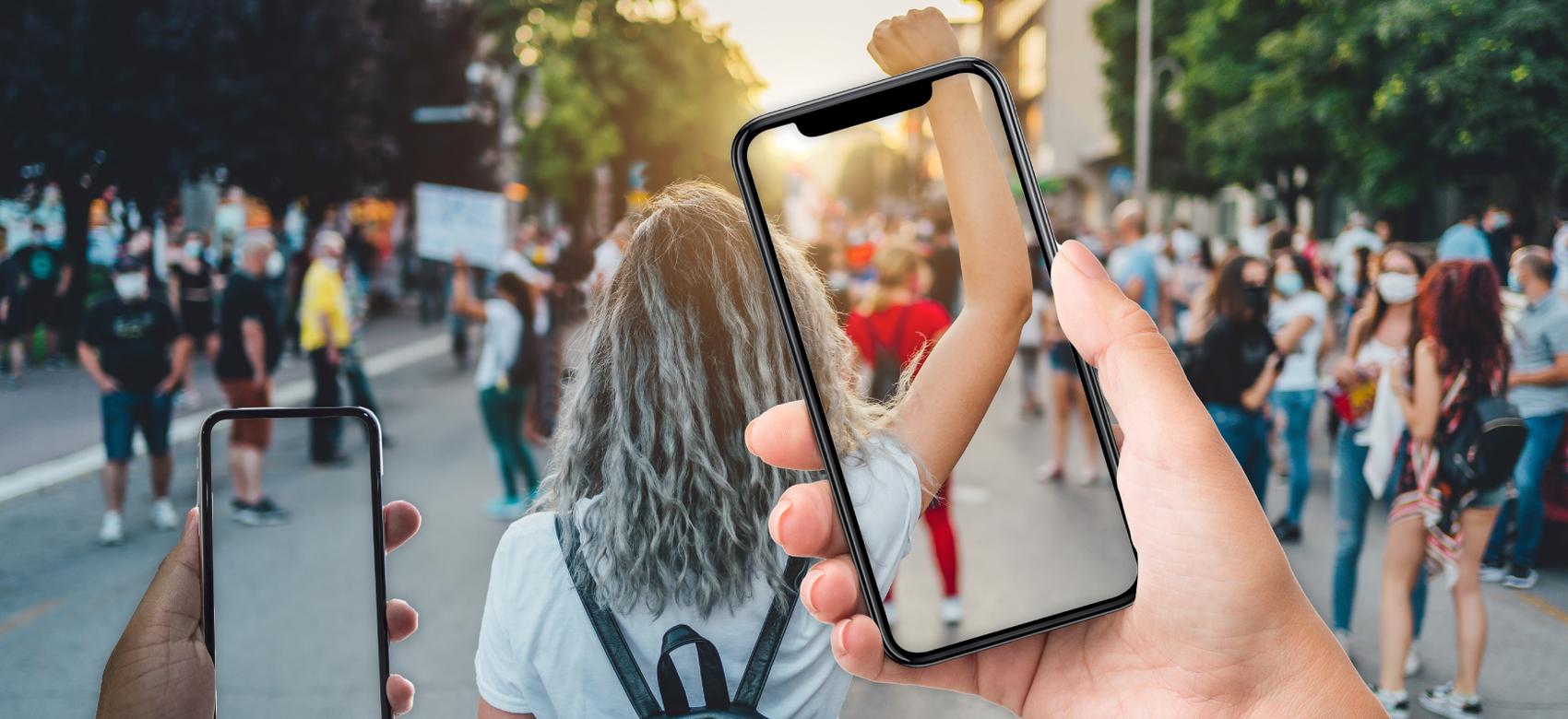From women’s rights to climate action: How ordinary people can help change the world
By Carolyn Ali

6 small actions can help advance the social movements you care about
If it seems like there are a lot issues worth fighting for these days, you’re right. Women’s rights, racial justice, climate change and Indigenous reconciliation are just a few that stoke passion for many.
Involvement in social movements is at a historic high, says Dr. Catherine Corrigall-Brown. The Head of the Department of Sociology at UBC researches social movements and what keeps individuals and organizations active over time.
“When we think about traditional activism, we think about a person on the street with a sign. But activism isn’t just that anymore,” she says. “The idea of activism is getting bigger and bigger, but it’s also changing.”
Social media, of course, has changed the activism game. And while it’s been criticized for breeding slacktivism, Dr. Corrigall-Brown says it’s actually served as a gateway to activism, facilitating broader participation both online and face-to-face. It has led to bigger, more coordinated protests, such as Black Lives Matter in the US and Fridays for Future global climate protests.
“If you think of activism as sort of an iceberg, there’s a lot more people at the bottom now who are doing small things online, like signing a petition or ‘liking’ things on social media,” she says. “And there’s a smaller number of people who are die-hard activists at the top. But social change is made by the middle group.”
That means there are many ways for ordinary people to make a difference, even if you don’t have a lot of time to devote to a cause.
Tackling the inequity around activism
Relatively young people, like those in their twenties, tend to be those who show up at social movements and community meetings, says David Tindall, a UBC Professor of Sociology who studies environmental movements. So do people of retirement age. “People aged 30 to 65 are much less likely to show up,” he says. “But that doesn’t necessarily mean that they don’t care. It might mean they have a full-time job or young children.”
“The vast majority of people involved in social movements go through waves of activism,” notes Dr. Corrigall-Brown. She points out that people who are the most disadvantaged often can’t press for social change. That’s because they’re too busy just trying to get by. A single mother, for example, may not have the childcare or job flexibility to attend a march. A person experiencing homelessness may be too focused on securing shelter to advocate for affordable housing.
For a movement to really grow and succeed, she says, it needs support and allyship from people outside the disadvantaged group. For example, when women were fighting for the right to vote, men helped advance the cause because they had the power to change the laws. Recently, issues that affect Indigenous people, who make up a small percentage of the population, have been gaining traction as the level of broader public awareness rises.
Indeed, social media is making it easier for people to raise awareness of their cause. “Social media connects activists to each other and people in positions of power,” points out Tanya Lloyd Kyi, a UBC School of Creative Writing lecturer who co-wrote Better Connected: How Girls Are Using Social Media for Good with her daughter, Julia Kyi. “It gives a voice to people from different parts of the world and different parts of society that we don’t always hear from.”
“Social media can be a great way to hold powerful people accountable,” adds Julia Kyi, who is a feminist advocate and UBC Political Science student. “You can make your voice heard to those you may not be able to connect with in real life.”
Interestingly, many of the activists the authors interviewed for their book didn’t initially consider themselves activists, but grew into the role. “They were ordinary people who felt very strongly about an issue,” says Lloyd Kyi. “They just felt driven by a need for change.”
So what kinds of actions really make a difference to changing policy?
“It’s not so straightforward,” says Tindall, who researches movements around environmental issues and climate change. “Sometimes social movement groups engage in some kind of protest and then policy gets implemented and they claim victory for making the change,” he says. But there is often a combination of other factors going on in the background that may have influenced political change, such as corporate or economic pressure or a shift in public opinion.
Nevertheless, the following individual actions can have a big collective effect.

Actions you can take
Voice your support online
Taking a stand on social media matters because it influences others, says Dr. Corrigall-Brown. Think of how the people who created the hashtags #BlackLivesMatter and #MeToo changed the societal conversation.
As you engage with a cause, the algorithms will feed you similar content, you’re likely to learn more about the issue and other ways to get involved. “Nobody starts by going to a massive protest without having done anything before that,” she points out.
However, beware of misinformation fuelled by people trying to counter or discredit a movement. “If you see something that is obviously trying to provoke you, don’t take the bait,” says Tindall. Look to multiple sources to determine if information is credible before sharing it, and don’t waste your time arguing with what might be bots.
Write a letter
Even in the age of social media, letter writing matters, says Tindall. Whether it’s to your elected representative or a publication’s opinion page, “it’s a little action that demonstrates a level of commitment.” Politicians figure that if one person takes the time to write, many times that number are serious about the cause.
And make it a letter, not an email. Tindall says that he’s heard from political parties, politicians and activists that the extra effort of getting a stamp and putting it in the mail delivers an outsized impact.
Volunteer or donate
Everyone’s resources are different, but giving your time, skills or money can help advance a cause. Get involved in your child’s PTA, or a local neighbourhood clean-up group, says Dr. Corrigall-Brown. If you want to be part of a movement but have no time for activism, “you can be an activist with your wallet,” says Lloyd Kyi. “That’s more effective than clicking on a petition online.”
Protest
“Part of the reasons that a protest on the streets works is because they’re dramatic and interesting,” says Dr. Corrigall-Brown. There is indeed strength in numbers as the media and politicians pay attention to protests and who shows up.
The paradox? “For many social movements, such as climate change, young people are disproportionately likely to be involved in protest activities,” Tindall says. “However, young people are much less likely to vote.”
Vote
“Politicians pay particular attention to social movements when they think they might translate to voting behaviour,” Tindall points out. Moreover, if activists can guarantee they’ll deliver a significant proportion of the electorate to a given political party or candidate, that party is more likely to do something for the cause.
Be the change
Behavioural change ultimately changes the world, and you can do that by incorporating your beliefs into your daily life. People can make progress on environmental issues in different ways; for example, a person who farms for a living could fight climate change through farming methods. Making music, writing or art can help amplify underrepresented voices. And, as International Women’s Day highlights, we can each actively support gender equity within our own sphere of influence.
Learn about the difference between activism and slacktivism
This article was published on February 22, 2023. Feel free to republish the text of this article, but please follow our guidelines for attribution and seek any necessary permissions before doing so. Please note that images are not included in this blanket licence.


